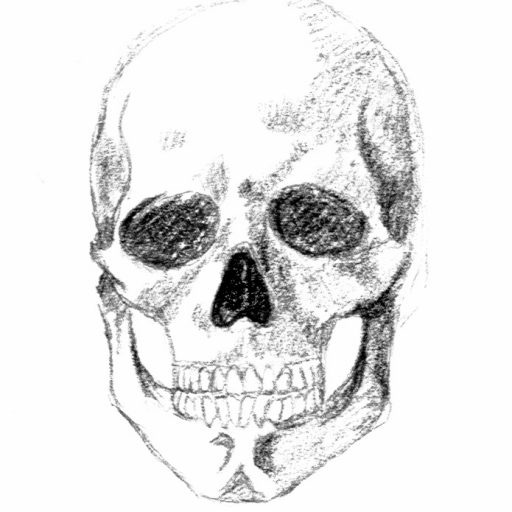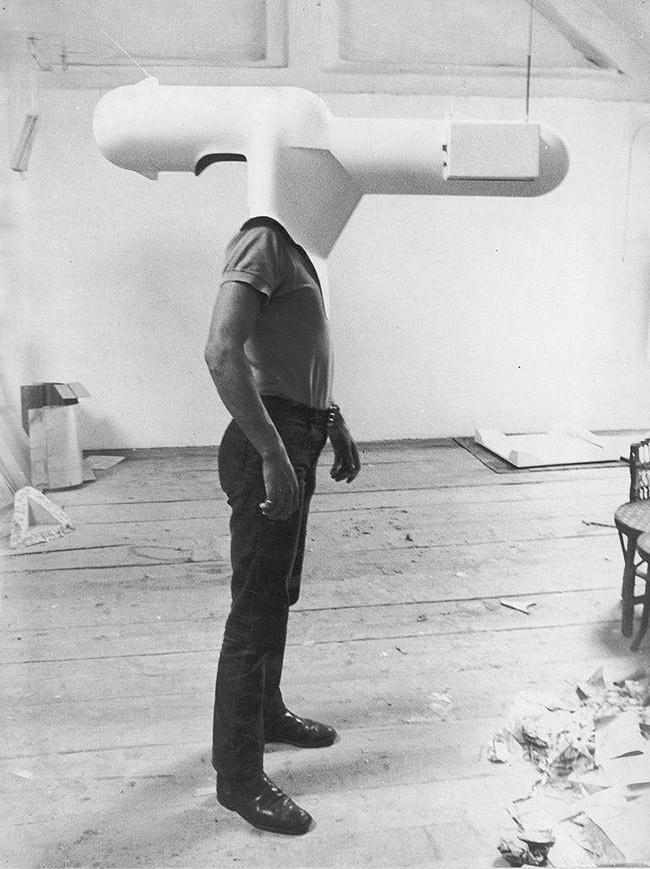
Haunted MTL Original – The Thing In The Bell Tower – Alex Taylor
The Thing In The Bell Tower by Alex Taylor
I knew it was no tornado that brought Ashland to the dust. Despite what I heard, despite what all the papers said, I knew–the ancient town held too many dark secrets for any natural storm to spell its destruction. Things that should have been buried long ago rose to the surface in that place, things no human eyes should have ever seen. And most were blind to it; I alone shook at the thought of the unmentionable horrors that lurk around every corner of that cursed town. Those I spoke to told me that I could not trust my perception, that loss and grief can force the mind to conjure otherworldly images where no supernatural force exists. And I believed them, for a time. I believed that childhood trauma can manifest as imperceptible shadows or imaginary creatures with too many eyes and fangs. But when I read that the entirety of my hometown had been obliterated by the storm, I knew that all I ever doubted was real.
The train I took toward the town from which I had tried so long to escape was empty and cold. The other passengers all disembarked at the popular stops: Greenville, Fairview, Madison Station. I alone was left in the metal cage that shook slowly on to Ashland. I wore a long brown overcoat–the winter months were bitter–and carried with me only a flashlight and an old book lodged firmly in my pocket. I had neither the desire nor the mental fortitude to withdraw what lay within, and I forced myself not to think of it. Those mad words and decrepit pages were useless to me. They served only to fuel a nightmare I desperately hoped was illusion. Though Ashland’s fate left little doubt, I wished that I was mistaken. Perhaps I would find that I was insane, that all that occurred in that ancient town was explainable. I shuddered to think of the contrary.
The train, whose foggy windows made a green blur of the world outside, shrieked and hissed as it pulled alongside the outdoor platform. I drew in a breath and hesitated a moment. Perhaps I would take the train to the next destination, stop at a little café, and forget about the small town that plagued my dreams–after all, little physical trace of it remained. Why waste time and thought on a place that no longer existed? And yet I knew that I would only delay the inevitable. As long as I continued to wait, the dreams would continue. The continual catch in my throat, the twitch in my neck that forced me to look over my shoulder–these would not cease until I forced myself to confirm either my suspicions or my insanity. I rose from my seat and trudged to the door. As it opened, frigid air entered the car. I pulled my jacket tighter and felt the spine of the book in my pocket digging into my ribs as I stepped off the train.
The wind threw the corners of my coat to one side. I screwed up my eyes and hugged my shoulders as I walked down a set of rusted metal steps and felt the gravel of the one-mile road that led to the center of town crunch underfoot. Ashland was lucky that a station had been built nearby–the town was so small that its construction baffled many of the citizens. My father was particularly surprised by it.
“Stephen,” he would ask me when I was young and looked up at him with wide eyes untouched by terror, “do you ever wonder why the train runs near Ashland? I never could figure it out. I always heard the whistle blowing at night, but I never understood why it came this way. I know the tracks were laid out after the town was built–I’ve seen some of the dates in those old buildings at the south end. But now they’ve put up a station. Can you believe it? It’s a little old thing, but they built it anyway. All for a small town that doesn’t get many visitors. I don’t get it.”
I didn’t care enough to listen then. I was too busy flirting with lands of make-believe. The only problems that mattered to me were those of my own invention, so I would nod along without hearing what was said. And now I stood reminiscing, wishing the station had never been built. I might have had an excuse not to return if it didn’t exist–though perhaps I never would have escaped without it. The same train had carried me away when I fled from the terrible things I saw. Though they were disappointed that they had to leave the place where they grew up, my parents knew that I could not receive the care I needed in Ashland. I did not sleep soundly until we were miles away from the source of my trauma. I was silent for weeks–and when I finally spoke, I could not bear to talk about what occurred. My family settled into our new home fifty miles from Ashland, and soon my experience faded in everyone’s memory but my own.
Shivering, I walked along the gravel road toward Ashland. The wind and the groaning of the trees at the roadside were the only sounds I heard, and as I crested the top of a hill, I could see the town–or what remained of it–sprawled out across the plain ahead. The reports I heard were not exaggerated. Each building had been ravaged. Some still clung weakly to sagging roofs, and others that I knew from childhood were reduced to piles of rubble, heaps of brick and shingles scattered about the town. Vehicles were overturned, every window was shattered, street lamps were bent in half or torn from the ground like fallen trees. Other ghastly shapes littered the ground, and I gagged involuntarily as I made out their forms. Here a man’s arm hung limply from a pile of debris, there a person lay impaled by a jagged beam of wood. My breath grew shallow and I put my hands on my knees to keep from becoming dizzy.
Eventually, my gaze fixated on one of the few signs of movement among the ruins. A man in a blue jacket was stepping over pieces of rubble, searching the ground. I gritted my teeth and made my way toward him, careful not to allow my peripheral vision to notice the rotting consequences of the town’s destruction. My steps were quick and my vision singular as I moved down the hill. He did not seem to notice my approach; he was looking intently at the ground as I grew closer. I noticed, as I could see him better, that he dragged alongside him a long blue bag that matched his coat, and I did not dare to guess at what was inside. When I drew within earshot, I called out to him, and he raised his head inquisitively toward me.
“Hello,” I called in a voice that I could not keep from shaking, “My name is Stephen Andrews.”
The man narrowed his eyes. “Did they send you here to help clean all this mess up?”
“No,” I said, climbing over a fallen wall, “I used to live here.”
He rolled his eyes and shook his head. “Figures. They send me out here just about by myself and now we’re getting tourists. There’s nothing to see here, man. Unless you’re one of those sick people that like looking at dead stuff, I suggest you leave the way you came.”
“I can’t. I–” I swallowed to gather my composure. The man was now directly before me. His hair was dark and matted down against his head, and dark rings lined his eyes. “I had to see it for myself.”
“It’s terrible. This much destruction, and they only send three or four guys to help clean it all up. The town’s practically a graveyard. I don’t know why they even bother, honestly. You alright there, bud? You’re looking a little pale.”
I nodded weakly. The bag he carried had taken on a familiar shape, and I was afraid I knew all too well what lay inside.
He must have seen me staring at the bag, because he looked down at it too. “I don’t enjoy the job, you know,” he grumbled. “It’s no fun for anyone, but someone’s got to do it. I’m the only one with the stomach for it, so they send me. It’s not so much the look that gets to me, but the smell. But I get through it, ‘cause that’s what I’m paid to do. Anyway, I’m supposed to try and identify them all, but I don’t have a clue who the hell any of these people are. You said you used to live here, right? Maybe you could help me out.”
He started to undo the zipper at the side, but he stopped when I cried out, “Don’t.”
He looked up at me for a moment and closed the zipper. “You’re just making it harder on me, man. But suit yourself. I’ll just mark him down as John Doe number forty-six.” He drew a pen from his pocket and began to scribble on a tag tied to the zipper.
As he wrote, I tried to gather the words that stuck to the insides of my throat. I knew I had to ask, but I feared the response. “These people,” I managed, “Do you really think they were killed by a tornado?”
He blinked at me in disbelief for a moment. When he saw my grave countenance and recognized that I was serious, he ran a gloved hand through his hair. “I don’t know. That’s not really my job to say. But if it wasn’t a tornado, I don’t know what else it could have been. Not that it really matters.” He went back to what he was doing before. “Dead is dead.”
“And the whole town is like this?”
“Yeah, pretty much.”
“Even–” I could feel the blood rushing to my head as I spoke, as if resisting what I was about to say. “Even the bell tower?”
The man bit his lip, seemingly unsure of what I was talking about, and relief began to course through me. “Oh,” he said suddenly, and all my breath went out, “you mean that old thing about a half mile east of here? I think I know what you’re talking about. I saw it when I first came in. Kind of creepy looking, if you ask me. Anyway, it held up pretty well. There may be a little damage, but it’s just about the only upright thing around. It was probably far enough away from town that it didn’t get hit as hard.”
I felt as if I had taken a blow to the stomach. My hands trembled and spots swam before my eyes. I had feverishly clung to the hope that the bell tower fell with the rest of the city. Instead, that dark place still stood, just as it had for centuries. Managing to say a brief thank you, I hurried off in another direction. I had to collect myself or risk fainting. It took me several minutes to gather my thoughts and regain my composure, and even then I could not stop my bottom lip from quivering. I stood amidst the wreckage of buildings I once knew with my hands on my knees, reeling in shock. The tower that plagued my nightmares still lived, and my fear along with it.
I could not see the bell tower from where I stood, and I was thankful it was so. A large mound of earth the townspeople called Sentinel Hill rose between the town and the barren field where the bell tower stood. It shielded Ashland from view of the bell tower, though the hill itself was neither steep nor treacherous. But superstition lay like a thick blanket over its sparse grass, so few ever climbed it. There was something unnatural about that hill and the plain that ran beyond. Perhaps it was the thinning patches of growth at its peak or the shadow it cast when the sun hung low in the sky that gave it an ominous air. Perhaps the way the bell tower past it stuck up like a black thorn amidst the plains was enough to deter people from the banks of the hill. I knew only that I was warned as a child to stay away from that place–that strange things happened there and it was safer to stay far from its menacing form.
The first time I visited that hill, it was with the rush of exultation that a child feels when breaking rules laid out for him. Now, as I looked on its somber shape with eyes full of experience and a mind troubled by the horrors of its past, I felt none of that excitement. I dreaded the climb that once expanded my mind and loosed my imagination. But I forced my feet to shuffle through the debris toward that abhorrent hill. I had come this far and could not turn away now. If I did, I knew I would have to return to Ashland again, and I did not think I had the strength to make the journey once more. I balled my fists and began to trudge through the wreckage toward Sentinel Hill.
Gradually, as I walked, the rubble disappeared. Rough grass blighted by the winter temperatures replaced the fragments of Ashland, and I could feel panic rising in my pulse. I forced myself to remain calm, reciting in my head memorized phrases I was taught by therapists to avoid a breakdown. Peace and joy are in my grasp, I thought. I am in charge. I let go of all that troubles me. I repeated these words until their cadence matched my weary steps, and, in time, I became less tense. It took me nearly twenty minutes to mount the side of the hill, and soon I could see the flat and rounded peak before me. Peace and joy are in my grasp. I made the last few steps toward the top and closed my eyes. I am in charge. I could feel the curvature of the earth below me flatten. I let go of all that troubles me. I stopped a moment to prepare myself before I opened my eyes.
I saw trees in the far distance, flat plains of grass that stretched before them, and then I saw it. The bell tower, burned forever into my memory sixteen years earlier, was the same as I remembered it. Crafted of some dark material reminiscent of obsidian, it rose from a patch of barren earth. Its belfry was topped by an iron spike that pointed like a demon’s barb into the sky, and the bell within was black and motionless. No nests could be found at its peak, and not even a crow was perched upon that bleak tower. I shuddered at the sight and began to sway. My throat constricted and I fell forward to my hands and knees. My lungs were useless–my airway but a straw–and bright pins began to dart in and out of sight as memories I killed when I was a child came roaring back to life.
The way Jack looked at me all those years ago as we lay peering over the edge of Sentinel Hill came back to me first. His eyes were blue and glittering with anticipation, and his dark hair hung wildly about his face. We were both twelve, then, and his youthful grin dragged a smile from my lips.
“Look,” he said, pointing into the distance, “you can see the bell tower from here! Isn’t it pretty?”
“I don’t know,” I responded hesitantly. “It looks kind of creepy to me.”
“It’s mysterious, I think. Who do you think built it? I think it must have been the first people that ever lived here. It definitely doesn’t look like any of the other buildings in town.”
“Yeah, I guess you’re right. Mysterious.”
He looked at me with a smirk. “You want to go check it out?”
“But my parents told me–”
“‘Oh Stephen, don’t you dare go near that bell tower! It’s soscary and sodangerous!’ My parents said the same thing about Sentinel Hill, but we’re sitting here, aren’t we?” The wind picked up and blew a piece of his hair across the middle of his face. “Come on, what are you waiting for? You even brought your flashlight like I told you, so don’t let it go to waste. The bell never rang in our entire lives, and now that it has, you’re not curious? Who could’ve even rung it? That place is boarded up more than a crack house! I can’t believe you let your parents scare you like that. I’m not going to let some made-up stories keep me from going down there.” With that, he stood and sprinted down the hill. I followed him, giggling as I ran.
The first and last time I heard the ringing of the bell occurred in the middle of a thunderstorm. It was faint, almost imperceptible–some people even claimed they never heard it. Those that admitted they noticed the sound said that the wind must have blown the bell hard enough for it to toll, but people did not like to talk about it. It was old and decrepit and didn’t matter anymore, they said. But to me and Jack, the sound of the bell tolling amidst the thunder resounded like a call to adventure. It was all we talked about for several days until we finally worked up the courage to climb Sentinel Hill and stare at its spectral form.
The wind carried our laughter behind us as we ran down the side of the hill. I chased Jack until we stood breathless and panting at the base of the tower. Any entrance that might have led inside was covered by thick wooden boards. Each board stood ten feet high, and the tower was much taller than it looked from afar. It must have been a couple hundred feet from the ground to the tip of the belfry, and standing at the bottom we could no longer see the bell. While I still struggled to catch my breath, Jack began to circle the base of the tower. It was fifteen feet long on any of its four sides, and he disappeared for a moment as he walked around it.
When he came back into view, he was chewing on his bottom lip. “Damn,” he said, “those boards go all the way around. How are we supposed to get in there?”
“Maybe we can’t.”
“Shut up.” Jack crossed his arms and stared at the corner of one of the boards. He paced over to it and began to kick at the edge.
“Stop it,” I scolded. “You’re going to
break something.”
“That’s the point, idiot. These
boards are still wet from the rain, and I think if I can kick hard enough–”
As he said this, the corner of the plank pulled free from the wall an inch.
Jack grinned and renewed his assault against the board. “Get over here and help
me with this.”
I joined him and we took turns kicking the board until it tore partially from the wall, exposing a doorway into the tower. Without a word, Jack wedged himself underneath the corner of wood and pushed open the door. The hinges screeched as it fell inward, and he looked back at me with a wolfish grin before pulling a silver flashlight from his pocket. He gestured for me to follow and ducked into the bell tower. I hesitated for a moment, unsure if I should enter, but childhood bravery overcame my sense of foreboding and I stepped inside.
The only light in the tower was the thin sliver that filtered in through the hole we had created. It shone across the floor for a few feet, illuminating suspended dust in the air and revealing stone that looked as if it had not been walked upon in centuries. I could hear Jack’s footsteps as he walked further inside, kicking up clouds of dirt, and he clicked his flashlight on as he retreated from the lone shaft of sunlight. It threw a wide beam against the wall of the tower, which was the same dark color on the inside as it was on the outside. In the darkness, I could not see Jack, but I watched as he threw light across each of the walls. I withdrew my own flashlight, and Jack started in surprise as he was suddenly illuminated.
“Hey, shine that somewhere else!” he cried.
“What’s that behind you?”
“Very funny.”
“No, I’m serious!”
He turned to see where I was aiming the light. Suspended in the air, stretching down from where I supposed it met the bell, was an enormous chain–each of the links must have been a foot long.
“Isn’t that supposed to be a rope?” Jack asked.
“I think so.” I lowered the light along the length of the chain until I reached the floor, where to my surprise a gaping hole allowed it to continue underground. “Do you see that?”
“Yeah. Where do you think it goes?”
Before I could respond, we were both startled by a third voice that sounded faintly from somewhere inside the tower.
“Hello?” it called. “Is anyone there?” The voice was feminine and soft, like that of a little girl who could not have been more than seven years old.
Jack and I at once turned to look at each other, wide-eyed. We stared in silence, jaws open, as the cries of “Hello?” continued.
Jack swept his beam across the room, but we could not see anyone else in the tower. “Yeah, we’re here,” he finally said in a subdued voice. “Where are you?”
She did not respond for a moment. There was something odd in the way she paused, but I paid it no mind. “I’m down here,” she said, and it became clear that her voice was emanating from the pit into which the chain extended. Jack walked over to the edge of the pit, which was no more than three feet in diameter, and shone his flashlight into the void below. The massive chain extended about twenty feet down where it coiled like a serpent on the stone floor. At one end of the pile of chains, its length continued past where we could see through the hole above.
“I don’t see you,” Jack called. “Come walk into the light.”
Again, there was a strange pause before she spoke. “I can’t move, I didn’t see the hole and I fell down. I think my leg’s broke. Please help me, mister.”
Jack looked toward me, bewildered. “Alright,” he said, “I’m going to come down and get you.”
“No,” she said.
“What?” Jack narrowed his eyes in confusion.
“No.”
“I don’t understand.”
“Don’t come down here. If you want to help me, you have to get the key. It’s sitting in the top-left drawer of the desk against the wall.”
Jack threw his arms up in the air and looked at me. I responded with a shrug. “What are you talking about?” he asked.
“Don’t come down here. Don’t come down here. Just get the key, please.” Her voice was too calm, too unwavering.
“Alright, my friend here will go get the key for you, but I’m going to come down there and get you.” I shook my head wildly but Jack mouthed, “Yes you will,” and reached out over the pit to grab the chain.
“Don’t come down here,” the little girl said once more. “Don’t come down here. Please don’t come down here.”
Jack gestured for me to move, so I began to walk along the length of the walls, searching for the desk. After a few moments, I found it–it was an ancient thing, barely standing and coated in a thick layer of dust. On top sat a book bound in black leather, and without thinking, I swiped it into my pocket before pulling open the top-leftmost drawer. As it slid open, I could hear the chain shaking slightly and the sound of muttered curses as Jack grabbed ahold of it and began to climb downward. His descent was marked by a sudden unresponsiveness from the little girl, and she went silent as Jack made the climb. Inside the grimy drawer, I saw an enormous key–it was made of iron so rusted that I thought picking it up might break it into pieces. As I reached to grab it, I heard the sound of Jack’s feet hitting the ground below.
Jack cried out in surprise. “What the hell?” he yelled out as my fingers brushed the rough edge of the key. “Stephen!” he screamed.
A shriek, a snarl, the sound of flesh ripping–all these met my ears in frantic succession. In a moment, it was over.
“Jack!” I cried out, whipping around and sprinting to the edge of the pit. “Jack! Are you okay? What happened?” I cast my light down into the pit and thought I saw a dark blur of movement sweep across the floor. The end of the chain faintly shook. All I could see was Jack’s flashlight rolling from side to side on the ground below.
Then, I heard it. “Everything is okay,” a voice called from the pit below. It was Jack’s voice, but it wasn’t Jack’s voice. There was something alien in the tone and discordant in the pitch that made me shiver. “I just fell down. Everything is okay. Just throw me the key, please.”
“What the hell are you talking about, Jack?” I cried, and I could feel tears brimming in my eyes. “Say something normal!”
“Throw me the key, please.”
At that moment, I began to sob. My body shook and I threw my head from side to side. “No,” I said in between breaths, “No.”
A loud rumbling noise began in the depths below. There was a flash of movement, and I staggered backward, screaming. I thought I caught an image of black, scaly skin–of sharp, jagged teeth–of far too many green, glowing eyes. I stammered madly and fled through the opening we had created, crying as I ran.
I could not breathe. My breaths came in a rapid, wheezing manner that hardly provided any air as the memory subsided. For several minutes I could not move, and the thought that I might die of my own fear in front of the tower that haunted me for so long seemed fitting. My limbs trembled, and I curled into a ball at the top of Sentinel Hill.
“I left him,” I whispered, beginning to cry. “I left him behind in that horrible place. Nothing happened–it was all my imagination–and I left him behind to die.” The thought that I had abandoned Jack all those years ago, that I was the reason he was never seen again, overcame me. I began to shake uncontrollably. All confidence I had in what I had seen slipped away. The years of therapists that told me my mind was making it up to hide my grief began to convince me that I was insane, that I never had the experiences that felt so real. Perhaps it all was a manifestation of grief, or of guilt–perhaps the little girl, the strange, disembodied voices, and the rusted key were all illusions crafted by my unconscious brain. As I struggled there on the ground, unsure of what was real and what was false memory, my hand came to rest on the book in my pocket.
My pulse slowed, and I withdrew it from its place. It was still bound in the same black leather cover it had when I first picked it up off that dilapidated desk. I had studied it for hours on end after Jack disappeared. Most of it was useless–a diary written by a man who lived in the seventeen-hundreds–except for a few tear-stained pages which I had committed to memory. Though I did not need to open the book, I did so anyway, if only to assure myself of its reality. The page I turned to read, in a scrawling script:
November 14th, 1737
The aforementioned Beast claimed another life yesterday; none know whither his body has gone. But, after his death, we devised a trap. It was a clever contraption of steel and springs, the design of which I know nothing about. Once the thing was captured, however, we discovered that it could not be killed, though we fired many musket rounds at its hide to test its strength. The thing was wounded, I believe–it entered a trancelike state wherein it no longer responded to any form of violent stimulation. Disheartened as we were that, no matter what action we took, it yet continued to breathe, we formulated a method to keep the Beast permanently restrained. Heavy chains shall be shackled to its limbs so that it cannot move–and, should it awaken after all of us are gone to Heaven, we will attach a bell to the end of the chain. If it moves, therefore, anyone living nearby will have reason for alarm and be alerted of its awakening. It is my sincere hope that this precaution is entirely unnecessary and that the slumbering monster shall never open its many eyes again. If it is loosed, it can only spell destruction–and it shall take more lives than it already has.
I let the book fall from my hands as my breath gradually returned. I was not crazy. The diary was proof–the thing that killed my friend did exist, and my memories could be trusted. In the course of a few minutes, I was able once more to stand, though on shaky legs. I descended Sentinel Hill in slow and measured strides, watching my feet as I walked. The wind whipped around me and I pulled my jacket tighter around my shoulders. It took me much longer to reach the base of the tower than it had when I was a child, still carefree and innocent–now the heavy weight of experience slowed my progress. The tower loomed before me, a shard of night rising from the ground. It only differed from my memory in one way–one of the boards that surrounded the tower had been ripped from the wall and sat twenty feet away in the thinning grass. It left exposed a door that was similarly destroyed, as it hung limply from one of its hinges.
The entrance yawned before me, and the little light that penetrated inside revealed the same stone floor I remembered. As I walked closer, however, I noticed that the dust had been cleared from the floor in a wide swath. I could feel another panic attack approaching as I neared the threshold, and I paused for a moment to steady my breath. If I could not do it for myself, I would do it for Jack. I had to know what happened that day. I had to discover the truth of my past.
Silence met my ears as I shuffled past the broken door and into the tower. Though I carried a flashlight with me, I did not dare to turn it on–for I knew that anything could dishearten and send me screaming from that horrid place. Once the dim light was exhausted and I was left in utter darkness, I began to crawl on all fours, groping for the hole that led to the underground pit.
“Hello?” I called softly. I dreaded a response, but none came. “Is anyone here?” I heard only the muffled echo of my words as I continued to inch toward the pit. My right hand suddenly fell through the floor, and I knew that I had reached the edge. Sobs began to shake my ribcage, but I managed to call out in a broken voice. “Jack?” Not even a stirring of the chains answered my cry, and bitter tears began to fall from my eyes. I reached forward over the pit and grabbed hold of the enormous chain. If my descent meant death, so be it; and if it proved that I was mad and that I left my friend alone to die in the dark, at least I would know the truth.
The climb was slow and meticulous. At each moment, I expected to feel claws upon my back or piercing fangs at my throat. But as I continued and felt the air grow colder around me, nothing stirred. My feet found the floor, and I braced myself for what was to come. I fumbled for the flashlight in my pocket with unsteady hands. It was cold and heavy, like the air around me. My thumb rested on the switch and I took in a sharp breath. I was beginning to feel faint. I pressed downward and a cone of light illuminated the darkness.
My jaw fell and I swayed to one side. Something caught in my throat–a scream, I thought–before it burst forth in a cackle. I waved the flashlight wildly about me on all sides and saw more of the same. The creature I glimpsed in my childhood was nowhere to be found. Around me on all sides lay ivory piles of bones–skulls that grinned in frozen amusement, femurs and ribs that rested atop one another in haphazard fashion. The ground beneath the plains, stretching for what seemed like miles, was an enormous tomb that held the remains of those who fell victim to the thing in the bell tower. At the end of the chain I saw open shackles, and a familiar, rusted key protruded from the lock. The last thing I saw before I fell unconscious in a seizure of furious laughter was an item I recognized: a small silver flashlight, the bulb cracked and broken, coated in dust, with the name “Jack” etched into the side.

Alex Taylor recently graduated from the University of Texas at Austin with a bachelor’s degree in English and Creative Writing. His work has appeared or is upcoming in The Nocturnal, Sanitarium Magazine, and Haunted MTL, and his short story, “The Shadow on the Wall,” was a 2017 James F. Parker Prize winner. He currently lives in Austin with too many roommates and not nearly enough cats.
Original Creations
Goodbye for Now, a Short Story by Jennifer Weigel
What if ours weren’t the only reality? What if the past paths converged, if those moments that led to our current circumstances got tangled together with their alternates and we found ourselves caught up in the threads?
Marla returned home after the funeral and wake. She drew the key in the lock and opened the door slowly, the looming dread of coming back to an empty house finally sinking in. Everyone else had gone home with their loved ones. They had all said, “goodbye,” and moved along.
Her daughter Misty and son-in-law Joel had caught a flight to Springfield so he could be at work the next day for the big meeting. Her brother Darcy was on his way back to Montreal. Emmett and Ruth were at home next door, probably washing dishes from the big meal they had helped to provide afterward, seeing as their kitchen light was on. Marla remembered there being food but couldn’t recall what exactly as she hadn’t felt like eating. Sandwiches probably… she’d have to thank them later.
Marla had felt supported up until she turned the key in the lock after the services, but then the realization sank deep in her throat like acid reflux, hanging heavy on her heart – everyone else had other lives to return to except for her. She sighed and stepped through the threshold onto the outdated beige linoleum tile and the braided rag rug that stretched across it. She closed the door behind herself and sighed again. She wiped her shoes reflexively on the mat before just kicking them off to land in a haphazard heap in the entryway.
The still silence of the house enveloped her, its oppressive emptiness palpable – she could feel it on her skin, taste it on her tongue. It was bitter. She sighed and walked purposefully to the living room, the large rust-orange sofa waiting to greet her. She flopped into its empty embrace, dropping her purse at her side as she did so.
A familiar, husky voice greeted her from deeper within the large, empty house. “Where have you been?”
Marla looked up and glanced around. Her husband Frank was standing in the doorway to the kitchen, drying a bowl. Marla gasped, her hand shooting to her mouth. Her clutched appendage took on a life of its own, slowly relinquishing itself of her gaping jaw and extending a first finger to point at the specter.
“Frank?” she spoke hesitantly.
“Yeah,” the man replied, holding the now-dry bowl nestled in the faded blue-and-white-checkered kitchen towel in both hands. “Who else would you expect?”
“But you’re dead,” Marla spat, the words falling limply from her mouth of their own accord.
The 66-year old man looked around confusedly and turned to face Marla, his silver hair sparkling in the light from the kitchen, illuminated from behind like a halo. “What are you talking about? I’m just here washing up after lunch. You were gone so I made myself some soup. Where have you been?”
“No, I just got home from your funeral,” Marla spoke quietly. “You are dead. After the boating accident… You drowned. I went along to the hospital – they pronounced you dead on arrival.”
“I don’t know what you’re talking about,” Frank said. “What boating accident?”
“The sailboat… You were going to take me out,” Marla coughed, her brown eyes glossed over with tears.
“We don’t own a sailboat,” Frank said bluntly. “Sure, I’d thought about it – it seems like a cool retirement hobby – but it’s just too expensive. We’ve talked about this, we can’t afford it.”
Marla glanced out the bay window towards the driveway where the small sailboat sat on its trailer, its orange hull reminiscent of the Florida citrus industry, and also of the life jacket Frank should have been wearing when he’d been pulled under. Marla cringed and turned back toward the kitchen. She sighed and spoke again, “But the boat’s out front. The guys at the marina helped to bring it back… after you… drowned.”
Frank had retreated to the kitchen to put away the bowl. Marla followed. She stood in the doorway and studied the man intently. He was unmistakably her husband, there was no denying it even despite her having just witnessed his waxen lifeless body in the coffin at the wake before the burial, though this Frank was a slight bit more overweight than she remembered.
“Well, that’s not possible. Because I’m still here,” Frank grumbled. He turned to face her, his blue eyes edged with worry. “There now, it was probably just a dream. You knew I wanted a boat and your anxiety just formulated the worst-case scenario…”
“See for yourself,” Marla said, her voice lilting with every syllable.
Frank strode into the living room and stared out the bay window. The driveway was vacant save for some bits of Spanish moss strewn over the concrete from the neighboring live oak tree. He turned towards his wife.
“But there’s no boat,” he sighed. “You must have had a bad dream. Did you fall asleep in the car in the garage again?” Concern was written all over his face, deepening every crease and wrinkle. “Is that where you were? The garage?”
Marla glanced again at the boat, plain as day, and turned to face Frank. Her voice grew stubborn. “It’s right here. How can you miss it?” she said, pointing at the orange behemoth.
“Honey, there’s nothing there,” Frank exclaimed, exasperation creeping into his voice.
Marla huffed and strode to the entryway, gathering her shoes from where they waited in their haphazard heap alongside the braided rag run on the worn linoleum floor. She marched out the door as Frank took vigil in its open frame, still staring at her. She stomped out to the boat and slapped her hand on the fiberglass surface with a resounding smack. The boat was warm to the touch, having baked in the Florida sun. She turned back towards the front door.
“See!” she bellowed.
The door stood open, empty. No one was there, watching. Marla sighed again and walked back inside. The vacant house once again enveloped her in its oppressive emptiness. Frank was nowhere to be found.

So I guess it’s goodbye for now. Feel free to check out more of Jennifer Weigel’s work here on Haunted MTL or here on her website.
Original Series
Nightmarish Nature: Just Jellies
Today on Nightmarish Nature we’re gonna revisit The Blob and jiggle our way to terror. Why? ‘Cause we’re just jellies – looking at those gelatinous denizens of the deep, as well as some snot-like land-bound monstrosities, and wishing we could ooze on down for some snoozy booze schmoozing action. Or something.
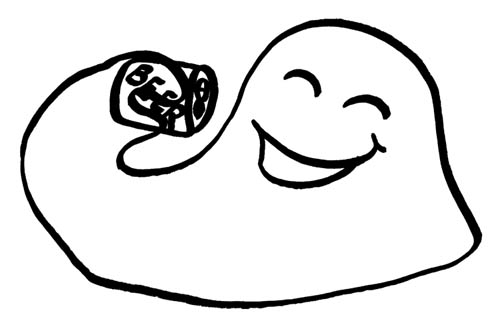
Honestly, I don’t know what exactly it is that jellyfish and slime molds do but whatever it is they do it well, which is why they’re still around despite being among the more ancient organism templates still in common use.
Jellyfish are on the rise.
Yeah, yeah, some species like moon jellies will hang out in huge blooms near the surface feeding, but that’s not what I meant. Jellyfish populations are up. They’re honing in on the open over-fished ocean and making themselves at home. Again.
And, although this makes the sea turtles happy since jellies are a favorite food staple of theirs, not much else is excited about the development. Except for those fish that like to hide out inside of their bells, assuming they don’t accidentally get eaten hanging out in there. But that’s a risk you gotta take when you’re trying to escape predation by surrounding yourself in a bubble of danger that itself wants to eat you. Be eaten or be eaten. Oh, wait…
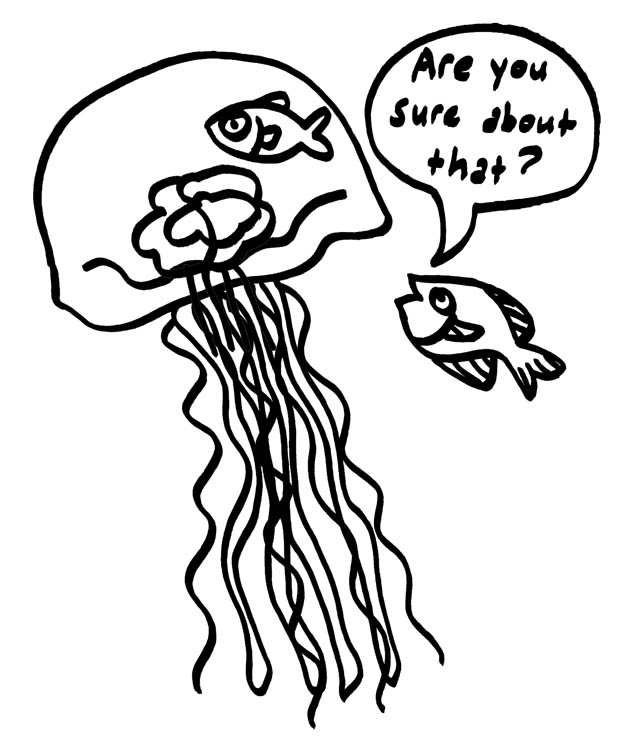
So what makes jellies so scary?
Jellyfish pack some mighty venom. Despite obvious differences in mobility, they are related to anemones and corals. But not the Man o’ War which looks similar but is actually a community of microorganisms that function together as a whole, not one creature. Not that it matters when you’re on the wrong end of a nematocyst, really. Because regardless what it’s attached to, that stings.
Box jellies are among the most venomous creatures in the world and can move of their own accord rather than just drifting about like many smaller jellyfish do. And even if they aren’t deadly, the venom from many jellyfish species will cause blisters and lesions that can take a long time to heal. So even if they do resemble free-floating plastic grocery bags, you’d do best to steer clear. Because those are some dangerous curves.
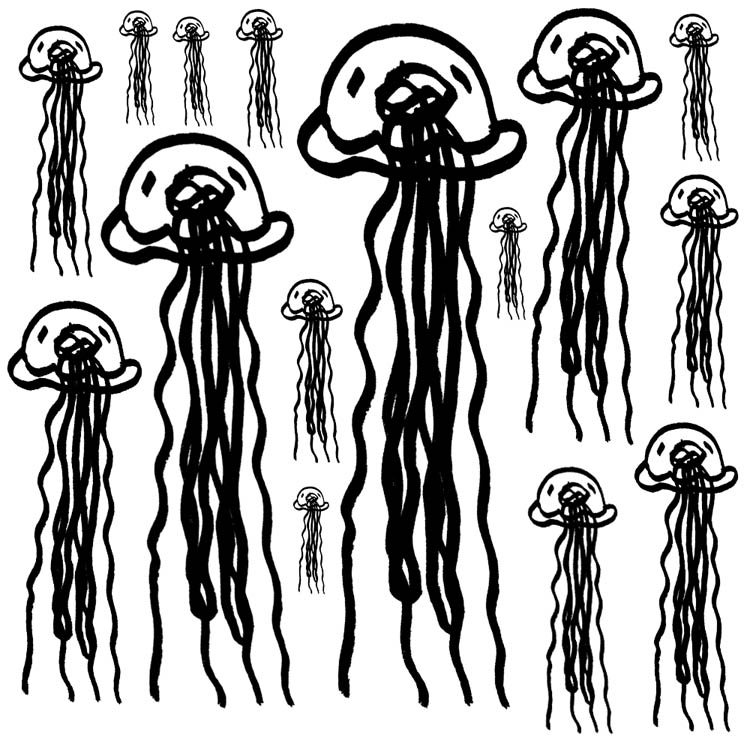
But what does this have to do with slime molds?
Absolutely nothing. I honestly don’t know enough about jellyfish or slime molds to devote the whole of a Nightmarish Nature segment to either, so they had to share. Essentially, this bit is what happened when I decided to toast a bagel before coming up with something to write about and spent a tad too much time in contemplation of my breakfast. I guess we’re lucky I didn’t have any cream cheese or clotted cream…

Oh, and also thinking about gelatinous cubes and oozes in the role-playing game sense – because those sort of seem like a weird hybrid between jellies and slime molds, as does The Blob. Any of those amoeba influenced creatures are horrific by their very nature – they don’t even need to be souped up, just ask anyone who’s had dysentery.
And one of the most interesting thing about slime molds is that they can take the shortest path to food even when confronted with very complex barriers. They are maze masterminds and would give the Minotaur more than a run for his money, especially if he had or was food. They have even proven capable of determining the most efficient paths for water lines or railways in metropolitan regions, which is kind of crazy when you really think about it. Check it out in Scientific American here. So, if we assume that this is essentially the model upon which The Blob was built, then it’s kind of a miracle anything got away. And slime molds are coming under closer scrutiny and study as alternative means of creating computer components are being explored.
Jellies are the Wave of the Future.
We are learning that there may be a myriad of uses for jellyfish from foodstuffs to cosmetic products as we rethink how we interact with them. They are even proving useful in cleaning up plastic pollution. I don’t know how I feel about the foodstuff angle for all that they’ve been a part of various recipes for a long time. From what I’ve seen of the jellyfish cookbook recipes, they just don’t look that appealing. But then again I hate boba with a passion, so I’m probably not the best candidate to consider the possibility.
So it seems that jellies are kind of the wave of the future as we find that they can help solve our problems. That’s pretty impressive for some brainless millions of years old critter condiments. Past – present – perpetuity! Who knows what else we’d have found if evolution hadn’t cleaned out the fridge every so often?
Feel free to check out more Nightmarish Nature here.
Original Series
Lucky Lucky Wolfwere Saga Part 4 from Jennifer Weigel
Continuing our junkyard dawg werewolf story from the previous St. Patrick’s Days… though technically he’s more of a wolfwere but wolfwhatever. Anyway, here are Part 1 from 2022, Part 2 from 2023 and Part 3 from 2024 if you want to catch up.
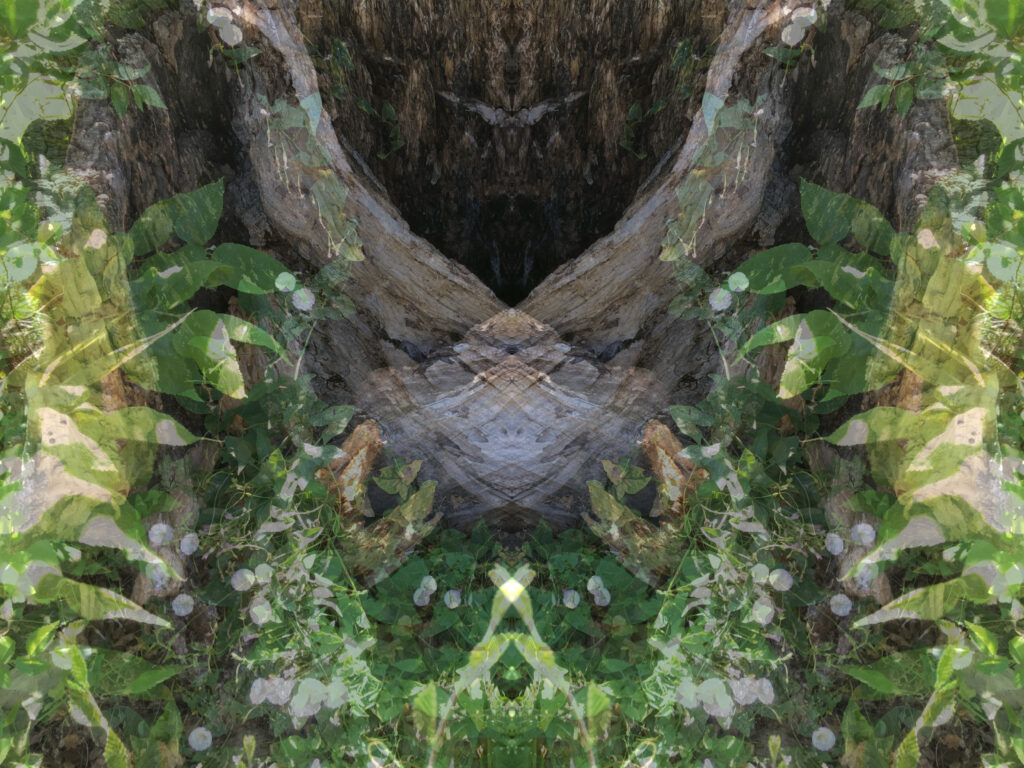
Yeah I don’t know how you managed to find me after all this time. We haven’t been the easiest to track down, Monty and I, and we like it that way. Though actually, you’ve managed to find me every St. Patrick’s Day since 2022 despite me being someplace else every single time. It’s a little disconcerting, like I’m starting to wonder if I was microchipped way back in the day in 2021 when I was out lollygagging around and blacked out behind that taco hut…
Anyway as I’d mentioned before, that Scratchers was a winner. And I’d already moved in with Monty come last St. Patrick’s Day. Hell, he’d already begun the process of cashing in the Scratchers, and what a process that was. It made my head spin, like too many squirrels chirping at you from three different trees at once. We did get the money eventually though.
Since I saw you last, we were kicked out of Monty’s crap apartment and had gone to live with his parents while we sorted things out. Thank goodness that was short-lived; his mother is a nosy one for sure, and Monty didn’t want to let on he was sitting on a gold mine as he knew they’d want a cut even though they had it made already. She did make a mean brisket though, and it sure beat living with Sal. Just sayin.
Anyway, we finally got a better beater car and headed west. I was livin’ the dream. We were seeing the country, driving out along old Route 66, for the most part. At least until our car broke down just outside of Roswell near the mountains and we decided to just shack it up there. (Boy, Monty sure can pick ‘em. It’s like he has radar for bad cars. Calling them lemons would be generous. At least it’s not high maintenance women who won’t toss you table scraps or let you up on the sofa.)
We found ourselves the perfect little cabin in the woods. And it turns out we were in the heart of Bigfoot Country, depending on who you ask. I wouldn’t know, I’ve never seen one. But it seems that Monty was all into all of those supernatural things: aliens, Bigfoot, even werewolves. And finding out his instincts on me were legit only added fuel to that fire. So now he sees himself as some sort of paranormal investigator.
Whatever. I keep telling him this werewolf gig isn’t all that it’s cracked up to be, and it doesn’t work like in the movies. I wasn’t bitten, and I generally don’t bite unless provoked. He says technically I’m a wolfwere, to which I just reply “Where?” and smile. Whatever. It’s the little things I guess. I just wish everything didn’t come out as a bark most of the time, though Monty’s gotten pretty good at interpreting… As long as he doesn’t get the government involved, and considering his take on the government himself that would seem to be a long stretch. We both prefer the down low.
So here we are, still livin’ the dream. There aren’t all that many rabbits out here but it’s quiet and the locals don’t seem to notice me all that much. And Monty can run around and make like he’s gonna have some kind of sighting of Bigfoot or aliens or the like. As long as the pantry’s stocked it’s no hair off my back. Sure, there are scads of tourists, but they can be fun to mess around with, especially at that time of the month if I happen to catch them out and about.
Speaking of tourists, I even ran into that misspent youth from way back in 2021 at the convenience store; I spotted him at the Quickie Mart along the highway here. I guess he and his girlfriend were apparently on walkabout (or car-about) perhaps making their way to California or something. He even bought me another cookie. Small world. But we all knew that already…
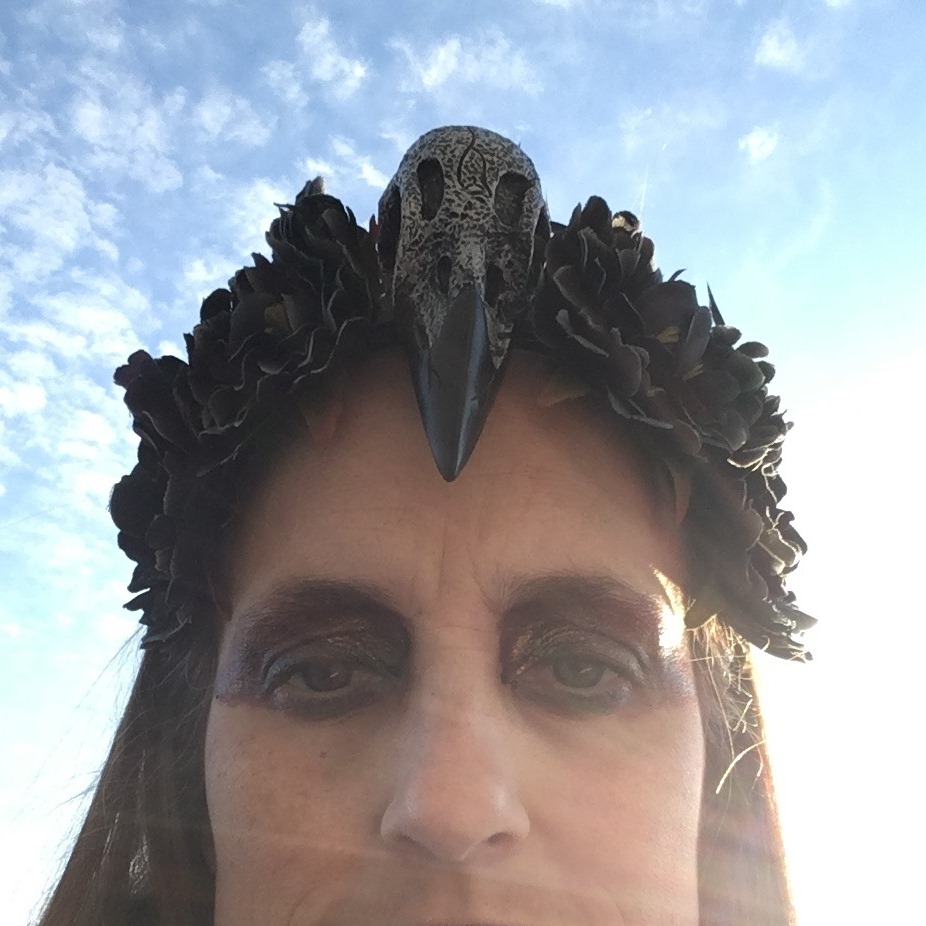
If you enjoyed this werewolf wolfwere wolfwhatever saga, feel free to check out more of Jennifer Weigel’s work here on Haunted MTL or here on her website.




